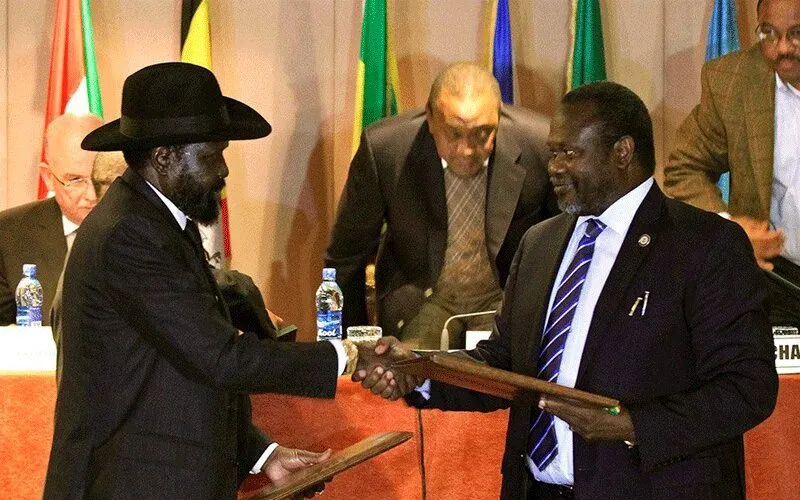“These five months is a very worrying time for the transitional period because all the institutions of the revitalized agreement shall become illegitimate and the government shall have no legitimacy to operate,” Kenyi told ACI Africa October 30.
He further said that although the government says it will hold elections in 2022, “the preliminary issues for elections are not being implemented.”
“There are several possible scenarios to occur if gaps in the agreement are not reconciled,” Mr. Kenyi said and continued, “For instance, the opposition and government forces may undertake joint military operations against other forces, which are not part of the agreement and affect the long-term peace and unity of the country.”
Alternatively, he said, “forces not part of the agreement may continue to fight the unity government and disintegrate into smaller administrative units without any organized central control of power.”
Mr. Kenyi called on political leaders in South Sudan to “lessen division, rivalries and disputes that make it very difficult to work together with colleagues.”
(Story continues below)
In July, Bishop Erkolano Lodu Tombe of South Sudan’s Yei Diocese called on the political parties “to respect the Revitalized Agreement on the Resolution of Conflict in South Sudan (R-ARCSS) in their bid to resolve conflicts in the country.”
“I encourage our government and opposition leaders to respect the agreement and try to implement it,” Bishop Tombe said July 23 as he addressed a high-level delegation of Ceasefire Transitional Security Arrangement Monitoring and Verification Mechanism (CTSAMVM).
He added, “When the agreement is respected, peace will reign in the country and citizens will reconcile with each other. It would be wrong on our side as religious leaders to remain silent on matters affecting South Sudan.”
On October 14, the leadership of the South Sudan Opposition Alliance (SSOMA) announced, in a Press Release, the resumption of peace talks.
Mediated by the Rome-based lay Catholic association, Sant’Egidio, the talks seek to promote an all-inclusive peace process in the East-Central African country.
Referencing the Revitalized Transitional Government of National Unity (R-TGoNU) in the October 12 Press Release, SSOMA leadership stated, “The South Sudan Opposition Alliance (SSOMA) would like to inform its members, supporters, the people of South and the international community, that SSOMA and R-TGoNU resumed the Rome Peace Process under the auspices of the community of Sant’Egidio.”
South Sudan’s R-TGoNU comprising the government and the country’s main opposition was formed on February 22 this year.








